- Home
- Jude Deveraux
Holly Page 2
Holly Read online
Page 2
“So how fast does it go?”
“One fifty, easy. But this thing will climb, too. It’s for off-road racing.”
“Legally?”
“Leon never did understand the difference between legal and illegal.”
Nick put out his hand and gingerly touched the side of the truck. “I’ve never been a lover of machinery, but I envy your brother’s passion. He loved something so much that he risked everything for it.”
“I guess you could look at it like that. I can tell you that none of his family did. Look, Doc—” he began, but Nick put up his hand.
“I’d be proud to take the place for the next few days. I like it here.”
“Even the kitchen?”
“Which one?” Nick said, looking toward the glassed-in office.
Suddenly, Carl’s face turned white. “You mean you’d stay in here? In Leon’s garage?”
“I won’t hurt…it,” Nick said, looking at the truck. “I certainly don’t plan to drive it.”
Carl hadn’t thought of anyone staying in Leon’s garage, and for a moment he had a vision of his brother escaping prison and coming after him. In Leon’s mind, the blood bond wasn’t nearly as strong as what he felt for his truck.
“I, uh, I…” Carl stuttered.
Nick looked at his watch. “Aren’t you on shift in about two and a half hours?”
“I…”
“Go on!” Nick said. “Leave me here alone with the truck and I’ll take care of it. I’m just going to do some fishing and I’ll sleep in here. That house is…” Words seemed to fail him when attempting to describe the house.
“I…” Carl said again, then the next moment Nick’s hands were on his shoulders and he was being pushed out of the garage and escorted back to his car. Nick took the keys, the paper with the code to the garage alarm system on it, and his bags from the back, and the next thing Carl knew he’d started the engine and was driving away.
“Leon is gonna kill me,” he said all the way back to the clinic.
Chapter One
HOLLY FELT AS THOUGH SHE’D PULLED OFF THE coup of her life—and by Christmas it would all be settled. After many calls, letters, emails, and promises, she’d finally persuaded her parents to buy Spring Hill Plantation just outside beautiful, historic Edenton in eastern North Carolina. Of course, it hadn’t hurt that her stepsister, Taylor, was going to marry a man who lived there.
Now, she was in the little grocery store that was two miles down the road from the ghastly house her parents had rented last year and she was trying to find something to eat that didn’t have a thousand calories a bite. She’d recently lost eleven pounds and she didn’t want to put it back on. Facing a summer near her skinny, beautiful stepsister had made her quit eating and go to the gym four nights a week.
And of course there was the prospect of seeing Lorrie again, she thought. For a moment her eyes glazed over as she remembered him. She was no longer seeing the store, but instead, saw the river and the dock and Lorrie. She’d been thirteen that summer and Lorrie had been sixteen—a tall, lean, bronzed young man, with golden hair and brown eyes.
That summer had started out horribly. Her parents nearly always rented a house somewhere for the summer, but until that year the houses had been in communities where their two daughters could swim and meet other people their own age.
But that summer a friend of her father’s had offered them the free use of his beautifully restored old house, built in 1778, located on a river, and set in the midst of four and a half acres of old trees and pretty flower gardens.
Holly had hated the place at first sight. Its isolation, the remoteness, had made her want to scream. In an instant she’d envisioned a summer in a hell of loneliness. Taylor was old enough to drive so she’d be going to nearby Edenton and joining the real world.
But what am I to do here the whole summer? she thought, near to tears. Catch tadpoles? Sit by the river and watch the turtles come up for air? It wasn’t what a pubescent girl wanted to do.
She’d tried to persuade her parents that they absolutely, positively could not force her to stay in that horrible place for an entire summer. They’d just smiled, then answered the always-ringing telephone.
For the first week, Holly had been so bored she thought she might lose her mind. Her parents had already left to fly to London, and Taylor had met a young man. Holly had been left in the charge of a woman who was at least as old as the house and who did little except sleep in the padded swing on the back porch.
It was at the beginning of the second week that Holly had been sitting on the edge of the pier, her legs tucked up to her chest, and contemplating her family’s regret if their youngest child ran away from home, when she heard an unusual noise. She looked up to see a rowboat coming toward her.
She had to blink, then rub her eyes and blink again to be sure she was seeing correctly. Coming toward her, his back to her, was a beautiful, shirtless young man. She couldn’t see his face, but if the front of him was half as good as the back of him, he was an Adonis.
Holly had stood up, smoothed her shorts and T-shirt—wishing she weren’t wearing her rattiest clothes—and waited.
When he reached her dock and turned, he was so beautiful that her breath nearly stopped.
“Hello,” he’d said, throwing a rope at her feet. “I’m Laurence Beaumont and I’m your next-door neighbor. You want to tie that down?”
She had no idea what he meant. Tie what down?
“The rope,” he said. “Tie it to the cleat.”
It had taken her a moment to understand what he meant. Cleat? Oh, yeah, the thing she used to scrape mud off her shoes. She picked up the rope and tied it in a very neat bow to the metal cleat, then looked over at the young man.
He looked at the cleat, then back at her, but he didn’t laugh. Later, she wondered at that. What other sixteen-year-old would have looked at a boat rope tied into a bow and not howled with laughter?
But Lorrie hadn’t laughed at her, not then, nor at any other time.
From that first moment, they’d been friends—kindred souls maybe, since they were so alike. Her name was Hollander, his was Laurence, but they were Holly and Lorrie to everyone. His family had lived in the same house since 1782 and two of his ancestors had signed the Declaration of Independence.
Holly had some big-shot ancestors on her father’s side, and her father himself had been an ambassador to three different countries. “He knows everybody and talks to each one every day on the phone,” she’d said under the breath.
Lorrie had laughed. “My old man makes deals all day.”
“What about your mother?”
“Died when I was three.”
Holly felt as though she’d been hit in the stomach. Her mother had died when she was one. When she told Lorrie, he sat down on the dock and they began to compare notes of their lives in earnest.
Both their fathers had been raised in impoverished gentility, with fabulous educations and old-world family names. Both fathers had married heiresses who’d died young. Both men had remarried women with no money. The difference was that Holly’s stepmother, Marguerite, was a sort of financial genius, while Lorrie’s stepmother’s main talent was in spending. Holly’s mother’s fortune, from Hollander Tools, had increased, while Lorrie’s mother’s fortune had long ago disappeared.
“All I have left is the title to the falling-down old house and a few hundred acres,” Lorrie had said cheerfully, looking at Holly. “What is it about you, kid, that’s making me tell you my life story? I didn’t tell my last three girlfriends this much.”
Holly hadn’t liked being called “kid,” and she didn’t like to think that this beautiful young man had ever had a girlfriend, but she took the compliment to her heart. “I guess we were just meant to be together,” she said, willing him to take her away forever in his canoe.
Smiling, Lorrie tousled Holly’s short, dark hair. “Maybe so, kid. Maybe you’re what I need this summer. Hey! I’ll race you t
o the other side of the river.”
Holly wasn’t a very good swimmer, but by the end of that summer she was, for she spent nearly every day with Lorrie. Although Lorrie had revealed lots of secrets about his past, she soon found out that he was close-mouthed about his current life. It was only through listening to the gossip her stepsister so loved that she knew Lorrie was hiding out that summer.
“The biggest snobs in eastern North Carolina,” Taylor had said at dinner. She was talking about the Beaumont family. “They’ve lived here since George Washington surveyed the area and even have a few letters from him. But seventeen years ago, the family was broke, so Laurence Beaumont the second married some rich little heiress and she conveniently died three years after having Larry the third.”
As always, Taylor had been oblivious to the emotions her careless words caused. Their father had also married an heiress who died young.
“Lorrie, not Larry,” Holly said and immediately wished she could take the words back. Her father, her stepmother, and her stepsister paused to look at her in surprise.
“The cook works for them sometimes,” she muttered, looking down at her food.
Taylor gave Holly a speculative look before returning to her gossip. Taylor was as gregarious as Holly was quiet. Taylor loved being in a crowd, while Holly wanted just a couple of girlfriends to pal around with.
Taylor had gone on to say that Lorrie—“silly nickname for a boy,” she’d said—was supposed to have gone to some elegant summer camp, but at the last minute one of his father’s stupid land deals fell through so there was no money. “The kid doesn’t want any of his rich friends to know, so he’s hiding out at his father’s family’s rotting old house. Have you seen him?”
It took Holly a moment to realize her stepsister was talking to her. “Who?” she asked, her heart fluttering wildly. She didn’t want anyone to know she was spending most of her time alone with a sixteen-year-old boy. Even though all she was doing was helping Lorrie remove paint off the molding in the old house, she feared that if they knew, they’d stop her.
“She’s been reading the classics, haven’t you?” her father said, looking at his only child fondly. Taylor was his wife’s daughter.
Holly looked at her plate and nodded.
Somehow she managed to keep her secret all summer. Her father and stepmother had flown in and out all that summer; Taylor had spent her time in Edenton, and the woman hired to baby-sit Holly couldn’t have cared less where her charge spent the day.
It had been a magical summer of long, hot days spent with Lorrie. They’d constantly worked together on his family’s plantation. His family had lived there since it was built before the American Revolutionary War, and Lorrie loved the place as much as his father hated it. One day while they were painting the dining room, Lorrie told her that his mother had married his father for his name and his home. She’d traded her fortune for the Beaumont history.
Lorrie’s grandfather, shrewd in business, had blessed his daughter’s marriage even though he saw what Laurence Beaumont was. However, before the marriage he’d made sure the plantation was given to his daughter’s children so that her husband couldn’t sell the place.
“I don’t remember her,” Lorrie said as she stroked butter-nut-colored paint onto the clean molding. “But I’ve been told she loved this house so much that she died for it.” He said the last with bitterness. He told Holly that his mother had died giving birth to another child. She’d so wanted to have her baby born in the Beaumont house that, against the doctor’s orders, she’d tried for a home birth. There were complications and both mother and child had died before the ambulance could get them to the hospital.
“Maybe your mother’s death is why your father hates this place.”
“Naw. He just loves Tiffany’s ass more.”
Tiffany was his father’s third wife and Lorrie despised her. She’d made her husband buy her a new, modern house in Raleigh and they stayed there, rarely even visiting the old plantation.
Holly never asked Lorrie about the camp he was supposed to have gone to. In fact, she didn’t ask him about anything that didn’t have to do with the house. He took her around to the falling-down outbuildings and told her what they’d been used for. He talked of his dream of someday restoring every building and being “a gentleman farmer,” he’d said, smiling.
“You can do it, Lorrie, I know you can.”
He’d laughed and tousled her hair—the only way he ever touched her.
It had been an idyllic summer in spite of the fact that she spent ninety-nine percent of her waking hours and a hundred percent of her sleeping hours imagining Lorrie kissing her. She stared at his lips until she knew every little crease in them.
If Lorrie had any idea she had a crush on him he never let her know. At the end of the summer she had to go back to school—this one in Ireland—and Lorrie had a year of high school to finish.
When they’d said good-bye, he’d picked her up, twirled her around, and said she was the kid sister he’d never had. Holly’d looked at him and willed him to kiss her. He did, but only on the forehead, then he’d tousled her hair one last time before he got in his car and drove away.
She’d told him she’d write him and she did. For six months she wrote Lorrie long letters, pouring her heart out to him, telling him of spats at her boarding school and of any accomplishments she was proud of. The only time he’d written back was when she sent him a paper she’d written about Colonial architecture. Lorrie had sent her a postcard that said, “Good work, kid. L.”
It was that summer with Lorrie that sent her on her career path. She decided to study architecture in college, but that soon changed to architectural history, then narrowed to American domestic architecture.
Over the years his lack of response made her stop sending him letters, but she never lost track of him. She followed his career after he graduated from law school, and she saw how he won nearly every case. She sent him a card of sympathy when she read that his father had shot himself after another bogus land deal had left him impoverished. She cried for three days after she read that Lorrie got married. But Lorrie’s marriage had been good for her. It had made her stop living in a fantasy, take her nose out of the books, and begin looking at the men around her.
She’d grown up to look like her mother, who had won a couple of beauty pageants, so Holly had never had trouble getting men. Over the years she’d had a few love affairs, one serious, but she’d never given her heart away. She’d never told anyone about her summer with the boy next door, but she knew that no man had ever made her feel as Lorrie had. No man had made her feel as though she wanted to say, “Here’s my life, take it. Do with me what you will.”
When she turned twenty-one, she came into her inheritance. Millions. After two days of elation and buying new clothes, she decided she had to do something real with the money, something worthwhile. What interested her was the preservation of old houses, but at the same time she didn’t want to become one of those rich women real preservationists put up with just for the money. She wanted to be treated as though she had a brain in her head, as though she knew Federal from Colonial from Greek Revival. She decided to get her Ph.D. in American architecture.
When she turned twenty-four, her father had a mild heart attack and was told to stop jetting all over the world. While Holly was at the hospital, she’d flipped through a Town & Country magazine. It had been two years since she’d read anything outside her subject so she could barely comprehend the magazine. It was when she saw the name Laurence Beaumont III that her eyes began to focus. The article said that Mr. Beaumont had recently divorced and that he was going home to his plantation outside Edenton, North Carolina, to open a law office there.
Suddenly it was as though everything Holly had ever wanted was within her grasp. She knew she had the money to buy the house next to Lorrie’s, but she also instinctively knew that he’d know exactly what she was up to. She’d learned that, to men, the chase was everything.
/>
As soon as her father was well enough to leave the hospital, she started her campaign to get him—not her—to buy Spring Hill, the old house they’d stayed in when she was thirteen. The isolation would allow him the peace he needed, she said. Maybe he could buy a pedal boat and get his exercise by gliding down the river.
Holly felt guilty about it, but she then led her father into asking her to please spend the summer with them. When he had finally asked, she acted reluctant, until her father said, “If you can’t, that’s all right,” then turned to his wife to change the subject.
Too loudly, Holly said that maybe the old house would be a good place for her to write her dissertation for her doctorate.
Her stepsister had looked at her so sharply that Holly’d had to hide her face. Her parents were so busy with their own lives that they didn’t have time to examine the lives of their two daughters, but Taylor rarely missed anything.
“I think Holly has a good idea,” Taylor said.
When Holly looked up, her stepsister’s eyes were saying that she meant to find out what Holly was up to.
After that, everything seemed to fall into place. Taylor had returned to Edenton to check out the house, had re-met an old flame, and had, unexpectedly, become engaged. She was planning an enormous wedding to take place on Christmas Eve and Holly was to be her maid of honor.
Holly’s secret was that she fantasized about making it a double wedding. She and Taylor would walk down the aisle together and join the men in their lives at the altar.
However, Taylor knew Holly was up to something. “I don’t know what you are up to but I’ll find out,” Taylor had said, then she’d smiled and asked Holly to take over some tasks for her. When Holly protested that she didn’t have time, Taylor said she’d strongly suggest to her parents that they not retire to the house outside Edenton. “They can stay in a hotel for the wedding. After all, after I’m married I plan to travel so there’s no need on my part for our parents to live in Edenton. But if you want them to live there…”

 Eternity
Eternity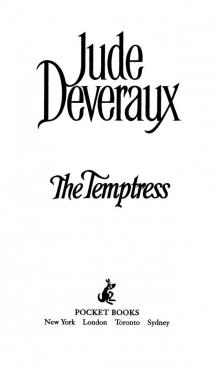 The Temptress
The Temptress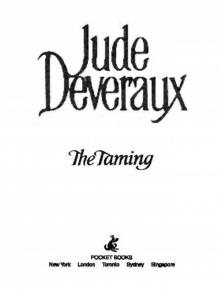 The Taming
The Taming True Love
True Love Forever...
Forever... Lavender Morning
Lavender Morning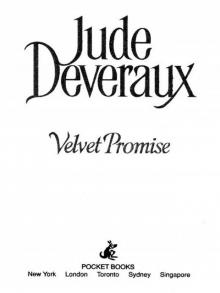 The Velvet Promise
The Velvet Promise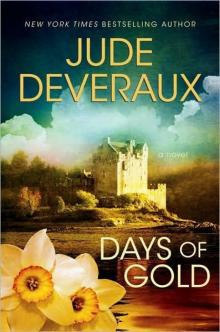 Days of Gold
Days of Gold Temptation
Temptation Counterfeit Lady
Counterfeit Lady Twin of Fire
Twin of Fire Remembrance
Remembrance Velvet Angel
Velvet Angel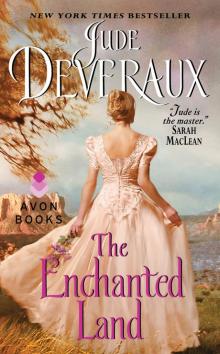 The Enchanted Land
The Enchanted Land Just Curious
Just Curious Wild Orchids
Wild Orchids First Impressions
First Impressions Wishes
Wishes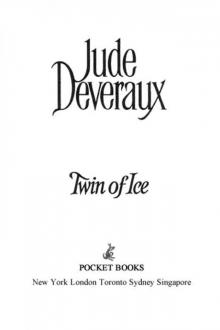 Twin of Ice
Twin of Ice Ever After
Ever After An Angel for Emily
An Angel for Emily River Lady
River Lady The Invitation
The Invitation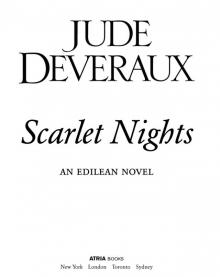 Scarlet Nights
Scarlet Nights The Black Lyon
The Black Lyon High Tide
High Tide The Girl From Summer Hill
The Girl From Summer Hill Sweetbriar
Sweetbriar As You Wish
As You Wish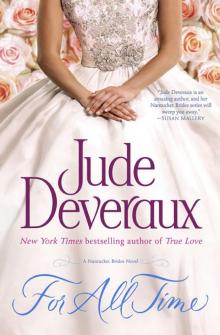 For All Time
For All Time Secrets
Secrets The Blessing
The Blessing Upon a Midnight Clear
Upon a Midnight Clear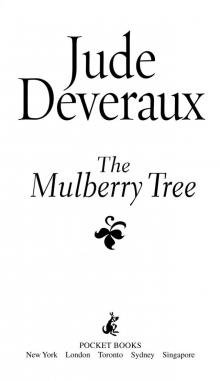 The Mulberry Tree
The Mulberry Tree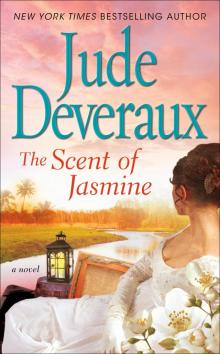 The Scent of Jasmine
The Scent of Jasmine Sweet Liar
Sweet Liar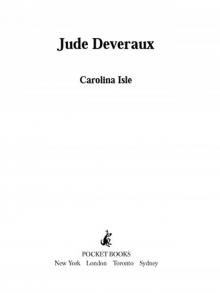 Carolina Isle
Carolina Isle Holly
Holly A Knight in Shining Armor
A Knight in Shining Armor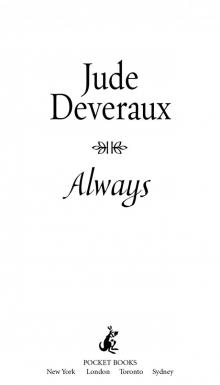 Always
Always The Duchess
The Duchess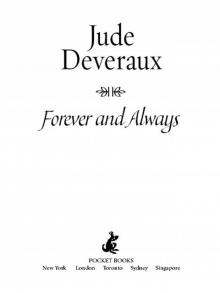 Forever and Always
Forever and Always The Raider
The Raider The Conquest
The Conquest Moonlight in the Morning
Moonlight in the Morning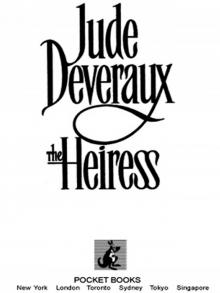 The Heiress
The Heiress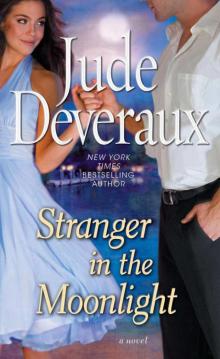 Stranger in the Moonlight
Stranger in the Moonlight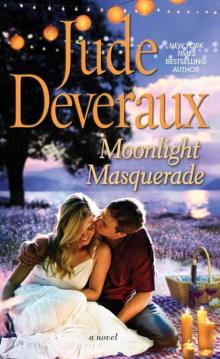 Moonlight Masquerade
Moonlight Masquerade Change of Heart
Change of Heart The Awakening
The Awakening Velvet Song
Velvet Song Someone to Love
Someone to Love The Summerhouse
The Summerhouse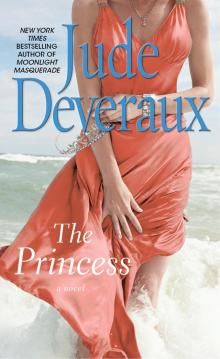 The Princess
The Princess Highland Velvet
Highland Velvet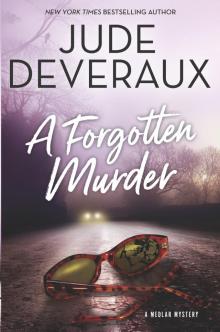 A Forgotten Murder
A Forgotten Murder Lost Lady
Lost Lady Met Her Match
Met Her Match LEGEND
LEGEND Forever: A Novel of Good and Evil, Love and Hope
Forever: A Novel of Good and Evil, Love and Hope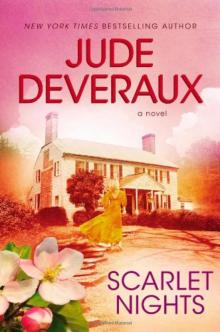 Scarlet Nights: An Edilean Novel
Scarlet Nights: An Edilean Novel